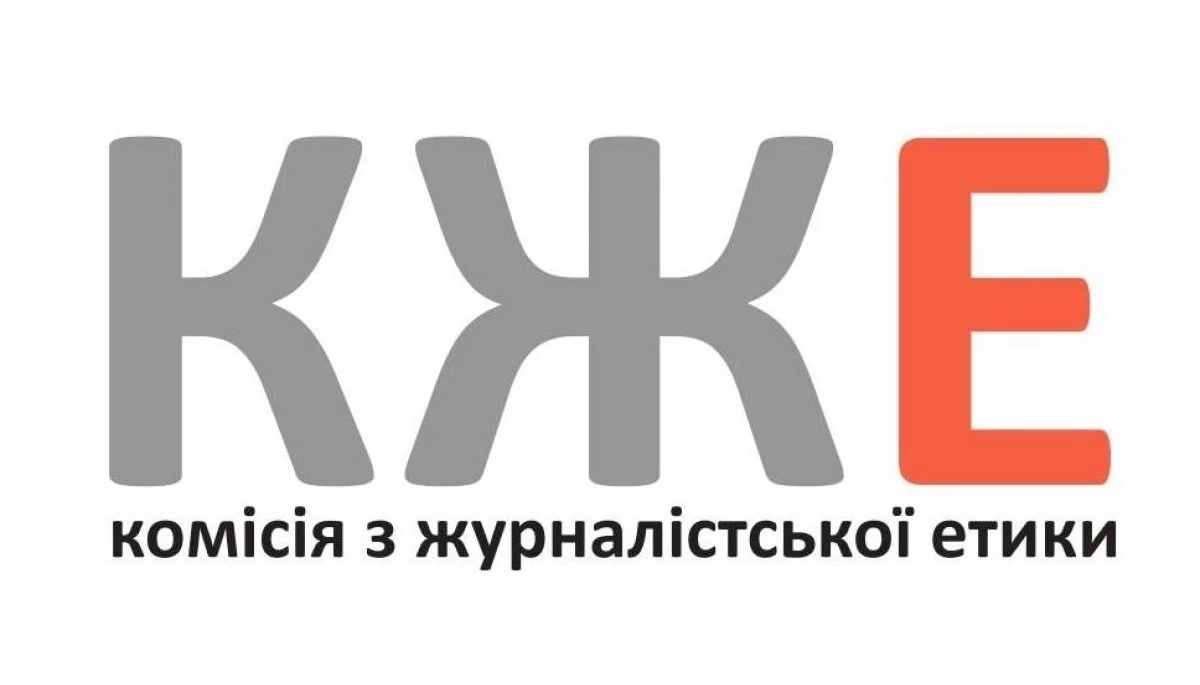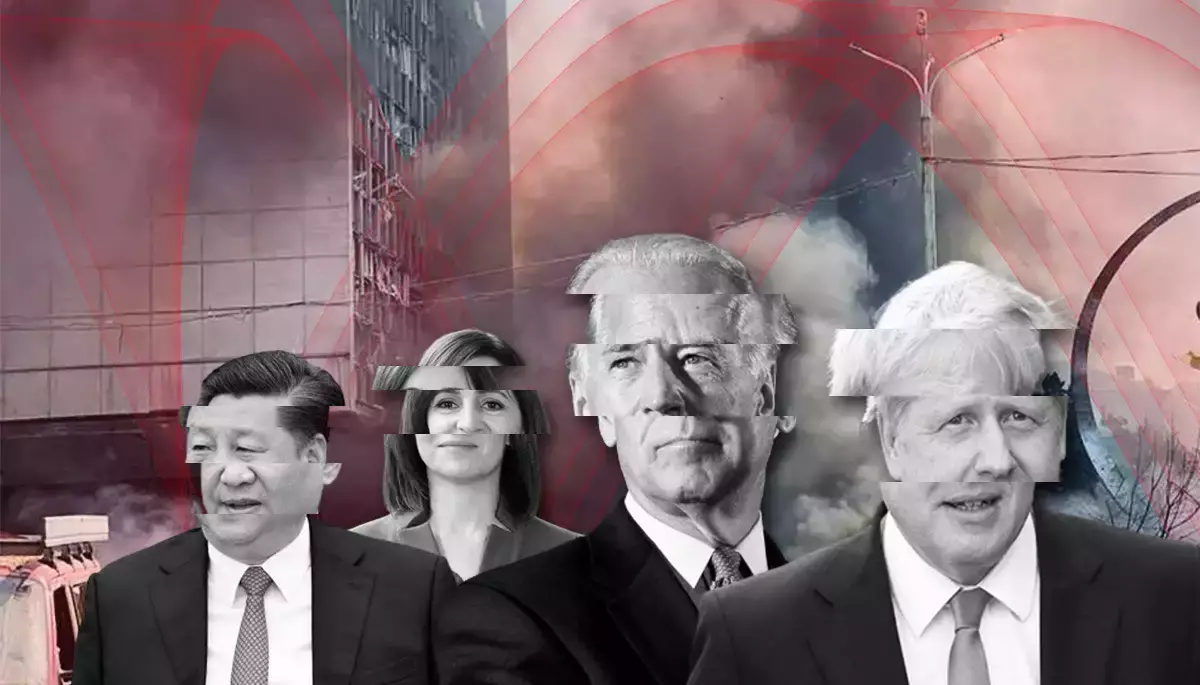
Candidates for "denazification". Countries "standing in Russia’s way" in its war against Ukraine
Candidates for "denazification". Countries "standing in Russia’s way" in its war against Ukraine
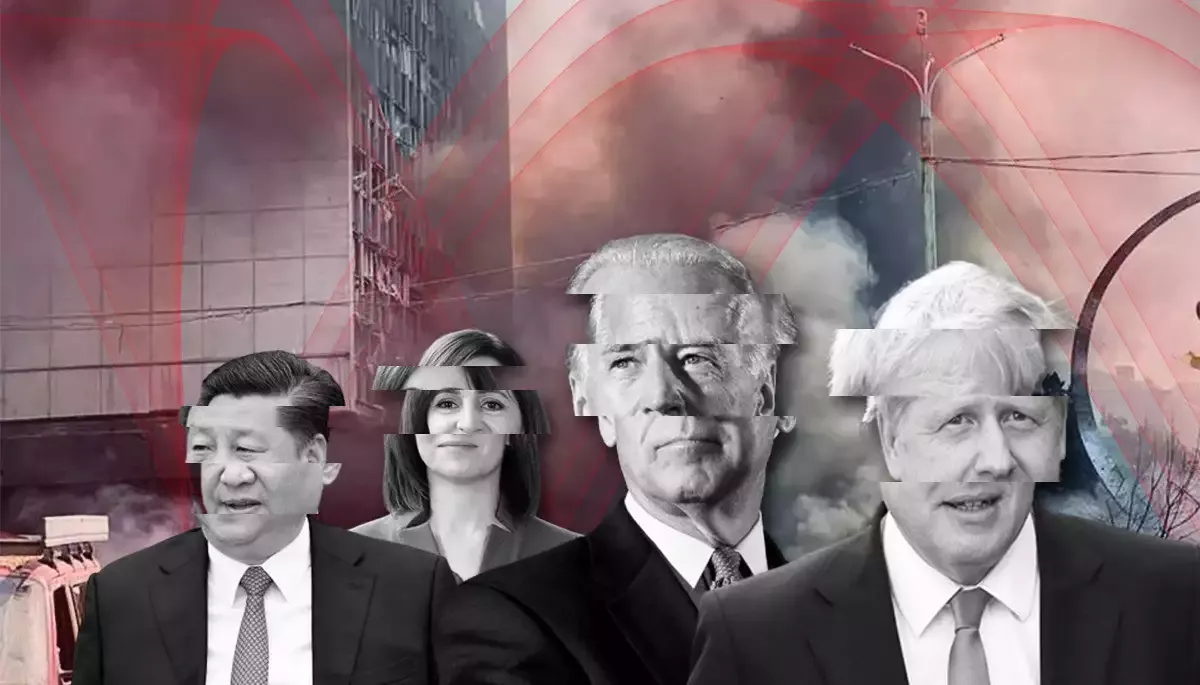

"Detector Media" continues its analysis of posts from the Ukrainian segment of social networks about countries supporting Ukraine in its big war with Russia and its leaders. In our last material, we explored Russia’s key messages and tactics against the "collective West" since February 24, 2022. In this material, we focus on specific countries and leaders mentioned in posts about the war in Ukraine in order to determine what has been written and which Russian messages have been disseminated about them in the Ukrainian segment of Facebook, Twitter, Telegram and YouTube.
Українською текст читайте тут.
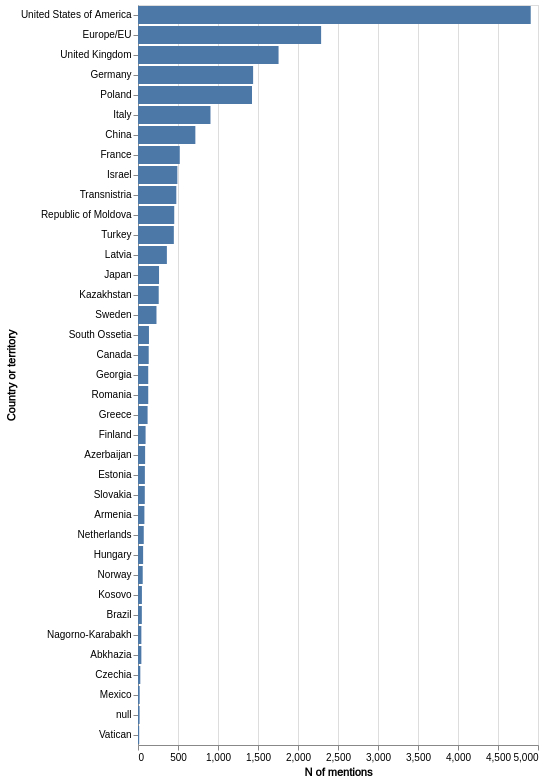
Methodology
The subject of the research: with the help of machine learning and elements of artificial intelligence, "Detector Media" has analyzed over 65 thousand posts on Twitter, Facebook, YouTube, and Telegram.
Sources: the Ukrainian segment of Facebook, YouTube, Telegram, and Twitter. For the purposes of this research, the Ukrainian segment encompasses posts that appear on profiles, pages, groups, and channels that are located in Ukraine, have indicated Ukraine as their location, or have a big share of Ukrainian users in their audience.
Monitoring period: February 24th - May 30th, 2022.
The research methodology can be found at this link.
Key findings of the research
1. Russia accuses the US and the UK of "its desire to take over the entire world." The US and the UK were mentioned in the Ukrainian segment of Facebook, Twitter, YouTube, and Telegram most often. Pro-Russian social media users threw around accusations and claims that "the most important issue of geopolitical reality is being resolved in Ukraine," wondering if the US, in particular, would rule the world through military and economic pressure. They called the war in Ukraine a battle for an anti-fascist and multipolar world, the development of which was hindered by the US policies. Great Britain, in the meantime, was said to deliberately incite panic with regard to the "special operation" in order to discredit Putin. It was also accused of provoking Russia into a conflict with Ukraine (!) and threatening Russia, which is why "it is necessary to use nuclear weapons" against it. Below you can see some phrases containing mentions of the US that were most often used in posts on this topic (the size of each phrase indicates the frequency of its use). Social media users often wrote about states and their leaders in Russian, almost no pro-Kremlin messages were disseminated in Ukrainian. "Detector Media" has translated phrases with mentions of states quoted below into English.
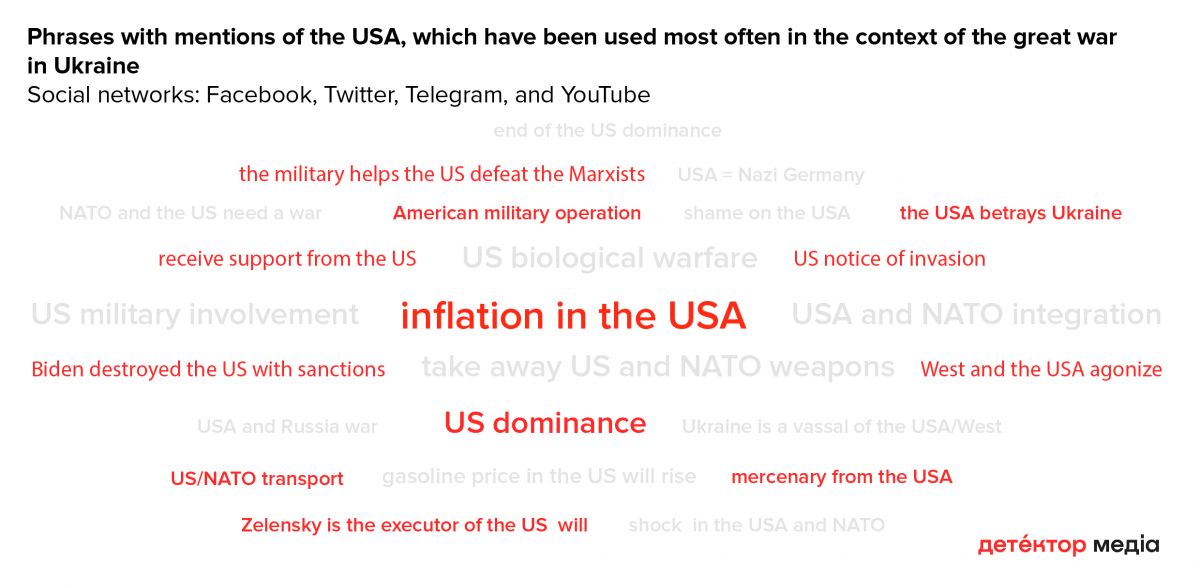
Since Russia often gets personal, the intentions of the US and the UK were often referred to as plans of their leaders, Joe Biden and Boris Johnson (who was still the Prime Minister of the latter at the time). At the same time, it was often hinted that both of them would be fine with "giving Ukraine up". For instance, they wrote that Biden wanted to "take revenge" for his son Hunter and "give Ukraine up." In the meantime, Johnson allegedly benefited from the war in Ukraine, which is why he was claimed to "forbid Zelenskyy" and other leaders of European states to negotiate peace with Russia. All such posts contained the narrative about the so-called external governance: "Biden has already given orders to Zelenskyy", "Biden planned a coup d'état in Ukraine", and "The UK weighs with all decisions taken by Zelenskyy". These claims boil down to the conviction that Russia is not the aggressor in the Russian-Ukrainian war, but other states and their leaders are.

At the same time, there were some opposite messages, too: the US and Biden were accused not only of playing against Russia but of playing along with its president, as well. For instance, it was claimed that "Putin would not have started a 'special operation' without Biden's permission."
2. Russia sees Poland, Hungary, the Baltic States, and Moldova "as a threat to Ukraine." Poland was designated as a threat to Ukraine and its integrity most often. According to propagandists, "external governance" now exists not only in Ukraine but also in Poland, which is allegedly completely dependent on the US. Therefore, its support for Ukraine is not sincere, but forced, being dictated by the West.
Propagandists also claimed that Poland wanted to annex a part of Ukraine, namely its western regions. However, according to Russian propagandists, Poland does not plan to seize those territories immediately, as it has resorted to wait-and-see tactics: it wants to wait until Ukraine decays and cut off its territories when Kyiv is no longer able to do anything about it. The US and the UK were mentioned in this context, too. They allegedly do not just support the occupation of Ukraine’s western regions by Poland, but demand that it be done and have already given their okay for that to Zelenskyy.
Pro-Russian users of the Ukrainian segment of social networks disseminated similar messages about "Poland's intentions to seize a part of Ukraine." The only difference consisted in the "manner" in which this supposed occupation was to take place. While Telegram and Facebook users wrote about Poland's "wait-and-see tactics" and "preparation" for an attack on Ukrainian territories, Twitter users promoted the idea that Ukraine should "give up" its western regions to Poland itself. Several theses had been chosen for the promotion of this message: they had to do with "Poland's right to its historic lands" and "territories of Banderits preventing Ukraine from building democracy." What's more, it was claimed that these western regions were "provoking the conflict with Russia."
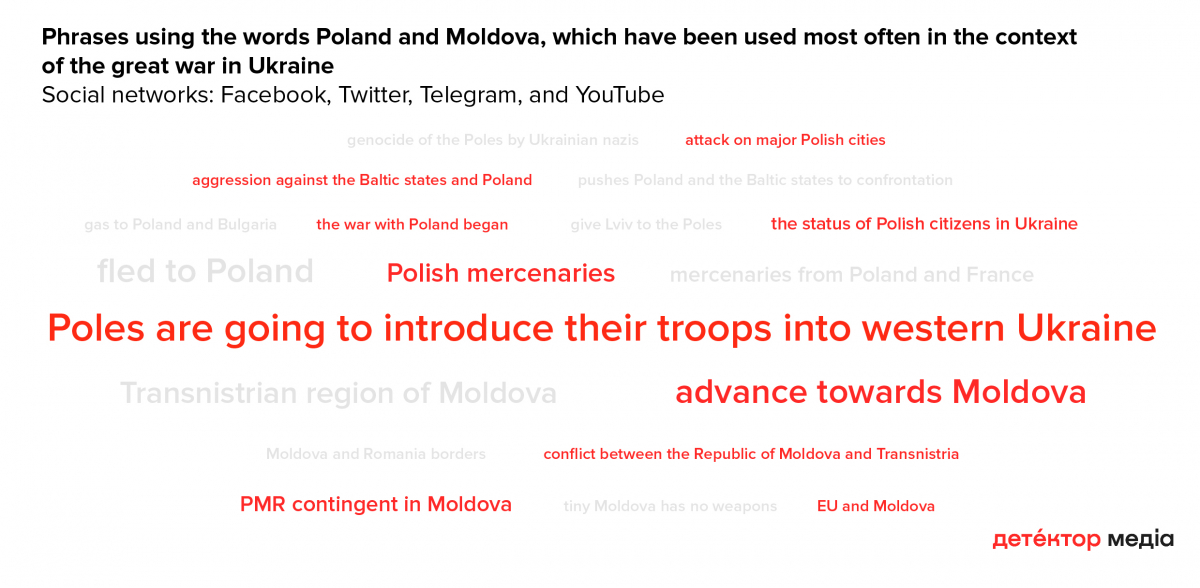
Apart from the above, some pro-Russian posts mentioned Romania, which would allegedly help Poland in its occupation of Ukraine. Bucharest itself was rarely accused of intentions to annex Ukrainian territories. Instead, pro-Russian users wrote that Romania must "send in troops to protect national minorities" or "restore its own sovereignty as of 1940."
They also tried to present Poland as a threat not only to Ukraine but also to Belarus, emphasizing that Warsaw was provoking Minsk and “had its plans” on Belarus. Propagandists claimed that "Ukrainian Nazis will be hiding in Poland." The occupation of Ukraine, according to some pro-Russian social media users, was not only Poland’s but also Hungary’s goal: the latter would seize Transcarpathia while Poland would invade other western regions.
3. Russia threatens that "the war will expand beyond Ukraine" - to Lithuania, Latvia, Estonia, Poland, Romania, France, and Germany. "And who's next?" — this is the question in the context of which pro-Russian social media users mentioned many states, mainly those who had provided weapons to Ukraine. In this way, Russia seeks to intimidate its governments and citizens and convince them not to go against Putin and his policies, claiming that "the war will expand beyond Ukraine." Lithuania, Latvia, Estonia, Poland, Romania, France, and Germany were threatened with the so-called denazification: “their turn will come.” Attacking other countries, in the imagination of Russian propagandists, is "salvation" meant to protect the world from "the Nazis". The UK, which was accused of "creating fascism in Europe and Africa," as well as "financing the Nazis of Ukraine," was often presented as an antagonist in this message.
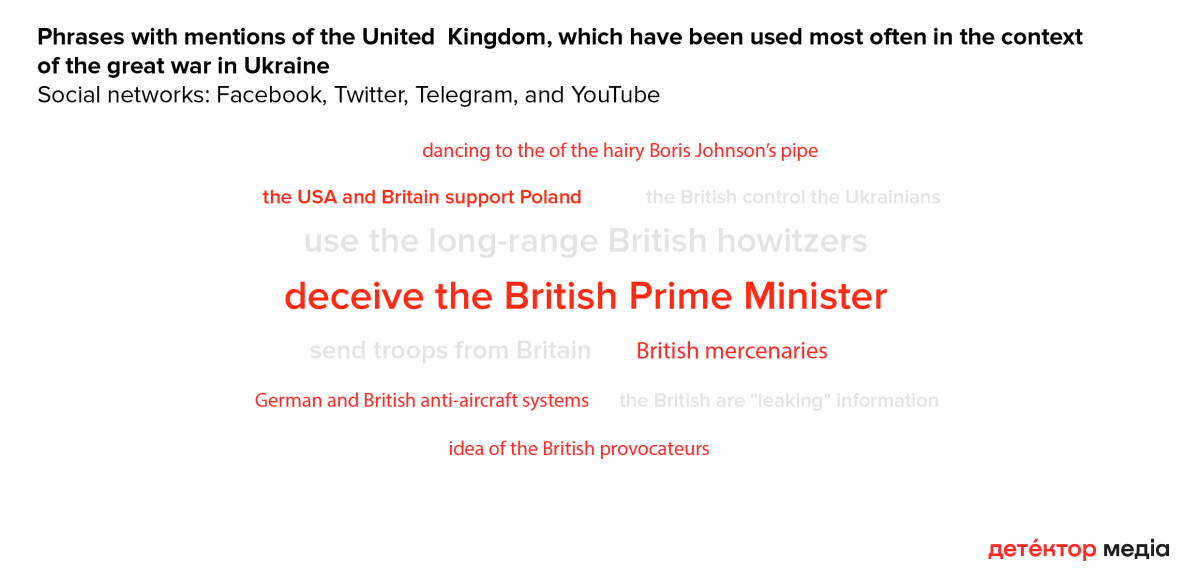
4. Russia accuses Turkey and China of "playing both sides of the fence." Pro-Russian users referred to individual states as "undecided," i.e. those who cannot understand whom they support in the Russian-Ukrainian war and try to "play both sides of the fence." As an example, they particularly mentioned Turkey, who did not introduce sanctions against Russia and thereby allegedly supported it, but at the same time supplied Ukraine with Bayraktar drones. Apart from that, such posts also contained mentions of the Turkish "grey wolves" fighting on Ukraine’s side.
China was mentioned as another state that cannot decide whose side it is on. They said that China did not introduce sanctions against Russia but had stopped financing the purchase of Russian oil and was raising its "head against Russia". Propagandists claimed that in China's opinion Russia would cope with its tasks on its own, therefore it had no intention of getting engaged in "the conflict." At the same time, it also did not want to fight Russia with sanctions, therefore it called on the parties to end the war through diplomatic means. Also, during our monitoring, we have found mentions of the Chinese leadership considering Russia a great power waging enough might, which is why Russia "does not need China’s or other states’ support." This is a well-known message of Russian propaganda disseminated to create the appearance of the so-called Russian greatness and to show that Russia has authority with another superpower, China.
5. Russia "forebodes" the Ukrainian scenario for Taiwan. The number of mentions of China in the Ukrainian segment of social media was influenced not only by its stance with regard to the war in Ukraine. China was often mentioned in the context of a possible attack on Taiwan. This message was not aimed at China, it was rather used for manipulative purposes against the US. Pro-Russian users wrote in their posts that the US was allegedly preparing the "Ukrainian scenario" for Taiwan, i.e., in had already started "flooding it with weapons" and "planning provocations" against China. This message was also used to intimidate Ukraine: supposedly the West would "abandon Ukraine" as soon as China attacked Taiwan.
6. Russia uses the example of the occupied territories of Moldova and Georgia to "justify" the war in Ukraine. A lot of attention in the posts of pro-Russian social media users was paid to the occupied territories of other states. The main message of such posts boiled down to "the West planning to make Russia scatter its troops across many fronts": "Turkey is ready to open a second front in Karabakh", and "France is increasing its pressure on Tbilisi to start a military conflict in Ossetia", "NATO representatives are pushing, through Romania, for the revitalization of Moldova’s conflict with Transnistria", etc. Georgia’s territories occupied by Russia – Abkhazia, and Ossetia - were cited as a "positive example". Pro-Russian users claimed that after Russia’s "special operations" these territories had become independent and thus only better. They designated that conflict not as a war of occupation, but on the contrary, a war of "liberation". In this context, parallels were drawn with the occupied Crimea, too.
However, Moldova and Transnistria were mentioned most often. Such mentions particularly read that “Ukraine should demilitarize Transnistria", that Kyiv would allegedly "only benefit" from it and that it would be "strategically advantageous" for Ukraine. These reports preceded the explosions in Transnistria; after April 25, 2022, Russia further intensified its attempts to accuse Ukraine of intentions to attack the occupied region. At the same time, there were posts saying that the worst-case scenario for Moldova would be if it supported Ukraine in the war with Russia and tried to solve the "Transnistrian problem" militarily.
Moldova was also accused of its territory being used for fuel supplies to Ukraine, as well as of its “drift” to the West and failure to stay neutral. Thus, pro-Russian users mentioned Maia Sandu, Moldova’s President, hinting that she was the one to decide on "a sweep in the country" and Ukraine's "offensive" on Transnistria. Similar accusations against Sandu transpired in another message, the one about "Romania’s and NATO’s military offensive on Transnistria" dubbed the "Bloody Maia" operation".
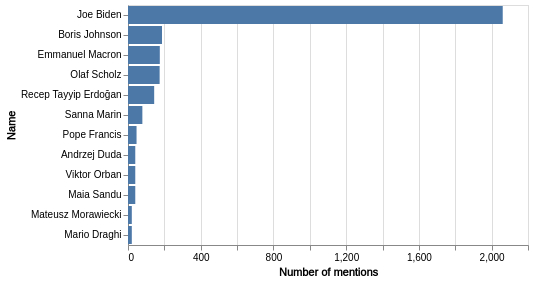
This diagram shows the overall breakdown of mentions of leaders in posts about the big war. These latter include posts by both pro-Russian and pro-Ukrainian users, as well as neutral (news-like) ones. For instance, the number of mentions of the former Prime Minister Johnson was influenced not only by Russian disinformation about Great Britain but also by pro-Ukrainian users discussing him, particularly by memes about his hairstyle or style of communication.
7. Russia is trying to drag not only Europe but also African and Asian states into the war. Users in the Ukrainian segment of social media mentioned not only European countries and the US, but African and Eastern countries, too. Apart from China, another Asian country that was often mentioned is Kazakhstan. The narrative went that not only European states need to "get ready" for the war because Putin "is a maniac who seeks to restore the borders of the former USSR." Kazakhstan was also mentioned in the context of its friendship with Russia, which has allegedly become weaker lately, leading to the country’s refusal to even hold a joint "victory parade" with Russians. This rhetoric intensified after Kazakhstan’s President Kassym-Jomart Tokayev refused to recognize the "independence" of the Russian-occupied parts of Luhansk and Donetsk regions. Pro-Russian users considered such actions of Kazakhstan's leadership dangerous, too, claiming that arguments with Russia "will get the country in trouble". India was mentioned as Russia’s potential competitor. As per the narrative, Washington was allegedly trying to make it one, "seeking to become a privileged partner in order to challenge Russia in the markets."
African states appeared as Russia’s "competitors". Russia creates the appearance of the US trying to make other states, particularly African ones, its competitors. For instance, there were some posts about Algeria increasing gas supplies to Italy, thus becoming able to “challenge Russia," too. However, not all posts about Asian states were pro-Russian. For instance, social media users mentioned Israel and Japan in a positive context. Users wrote, among other things, that Israel was paying incrementally more attention to Ukraine and that Kyiv wanted to see it as a guarantor of its security. At the same time, the pro-Ukrainian segment of social media actively spread the news about Japan, who for the first time in 19 years had called the Kuril Islands illegally occupied by Russia. This statement provided the grounds for optimistic forecasts with regard to relations between Kyiv and Tokyo.
8. The social media trend for a pro-Ukrainian position. "Detector Media" has previously written that the media and state bodies have become more active in their communication through social networks, launching new channels and accounts. This has had a positive impact on the Ukrainian segment of social media since pro-Russian messages have become mixed into a large amount of pro-Ukrainian content. While Facebook had seen a fairly strong pro-Ukrainian "voice" before, this time we have seen it on Telegram and YouTube, as well. At the same time, more attention should be paid to communications on Twitter to promote Ukraine’s position, including among the international audience.
Visuals prepared by Oleksiy Pivtorak and Yevhen Sapolovych. Collage prepared by Mykola Shymanskyi







